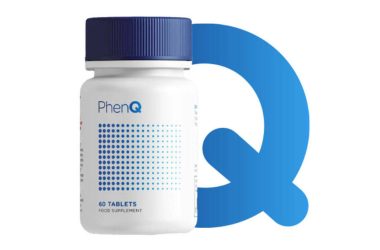Natural appetite suppressants are all the rage right now. In fact, some people swear by them as a method of losing weight and keeping it off. However, natural appetite suppressants have their own set of side effects. Are they safe? What should you know before taking one? How effective are they?
Natural appetite suppressants can be found in many different places. You can find them on the Internet, at your local health food store, or even at your neighborhood pharmacy. They’re sold under various names such as herbal appetite suppressants, diet pills, fat burners, and so on. It’s important that you read the reviews about these products, as well as the ingredients used to make them, before using any of them.
Are you searching for the best Appetite suppressant? If yes then you can plan to visit the official site of the suppressants. There is variety of the option available. A person can be on the platform and get the detail of the various suppressants. Making the proper analysis of the various options an choosing the most effective option must be the choice of people.
What is an appetite suppressant? An appetite suppressant is a supplement designed to decrease your body’s desire for food. This includes both stimulants and depressants, which are the two main types of supplements in this category. Stimulants stimulate the brain and nervous system, causing you to want to eat more. Depressants, on the other hand, will decrease the amount of hunger the body has while it’s trying to maintain its energy stores. The goal of either is to keep you from eating too much. The idea behind this is that if you don’t eat enough, then you won’t gain weight.

The most common form of natural appetite suppressants available today are caffeine based. Caffeine is what gives coffee its stimulating effect. Most commonly, caffeine is combined with ephedrine. Ephedrine is a prescription drug (under the name “Ma huang”) that was originally developed as a decongestant. When taken orally, however, it stimulates the central nervous system. Because of its stimulant properties, it’s been used over the years in the treatment of asthma, obesity, and attention deficit disorder. It works by activating the sympathetic nervous system, meaning your body releases stress hormones like adrenaline and norepinephrine. These hormones, in turn, increase heart rate, breathing, blood pressure, metabolism, and muscle tone.
When combined with caffeine, however, ephedrine becomes far more powerful than when taken alone. The combination of these two compounds produces a synergistic effect. Synergism occurs when two chemicals produce a greater effect than would be expected from each individual chemical acting alone. In the case of ephedrine/caffeine, it increases metabolism, decreases appetite, and suppresses the release of insulin, the hormone responsible for storing glucose in the bloodstream. This means that the body burns fat instead of storing it.
However, there are several problems with the use of ephedrine. For starters, it can cause elevated levels of blood pressure and heart rate, which could result in cardiac arrest. There are also reports of seizures occurring in users who take large doses of the compound. Finally, long-term use of ephedrine can lead to dependence, which means that once you stop taking it, you’ll experience withdrawal symptoms similar to those of heroin addiction.
Another common ingredient used in natural appetite suppressants is guarana. Guarana is a plant native to Central America, South America, and Africa. Its main active constituent is called “guaranine.” This substance, which is also present in acai berry, has been shown to increase metabolic activity. That is, it promotes burning of calories and increases the overall level of physical activity. Guarana is also known to increase production of serotonin, a neurotransmitter involved in mood regulation.

Another popular ingredient used in natural appetite suppressants is green tea extract. Green tea contains catechins, which are polyphenolic antioxidants. They work by neutralizing free radicals in the body. Free radicals are molecules and particles that contain oxygen atoms but lack an electron. They occur naturally inside cells, where they play a role in cell division, DNA repair, and immune function. It turns out that free radicals are also linked to aging. By removing them from the body, green tea may reduce the risk of cancer, cardiovascular disease, Alzheimer’s disease, cataracts, macular degeneration, and other conditions associated with oxidative stress.
As you can see, there are quite a few different ingredients used in natural appetite suppressants. Some are beneficial, others aren’t. For example, although guarana has been shown to increase metabolic activity, it doesn’t seem to have any appetite suppressing benefits. And although green tea extract may remove free radicals from the body, studies suggest that it doesn’t have any significant effect on blood sugar. So how do you determine which natural appetite suppressant is best suited for your needs? One way is to look for ingredients that have been investigated extensively and show promise for weight loss.
It’s also important to note that natural appetite suppressants are not recommended for use during pregnancy or if you have serious medical conditions, such as diabetes. If you decide to try one anyway, always consult your doctor first. Although many of the ingredients used in natural appetite suppressants are harmless, there are some potential risks associated with them. Talk to your doctor if you’ve got any questions about whether or not you should use one.
One final thing: As I mentioned earlier, all natural appetite suppressants are not created equal. Some of them contain dangerous ingredients, while others don’t. For example, ephedrine does have some benefits, but it is very addictive. Therefore, if you’re going to use one, make sure you only buy from reputable companies. Read customer reviews carefully, and stick with brands that have good reputations.



